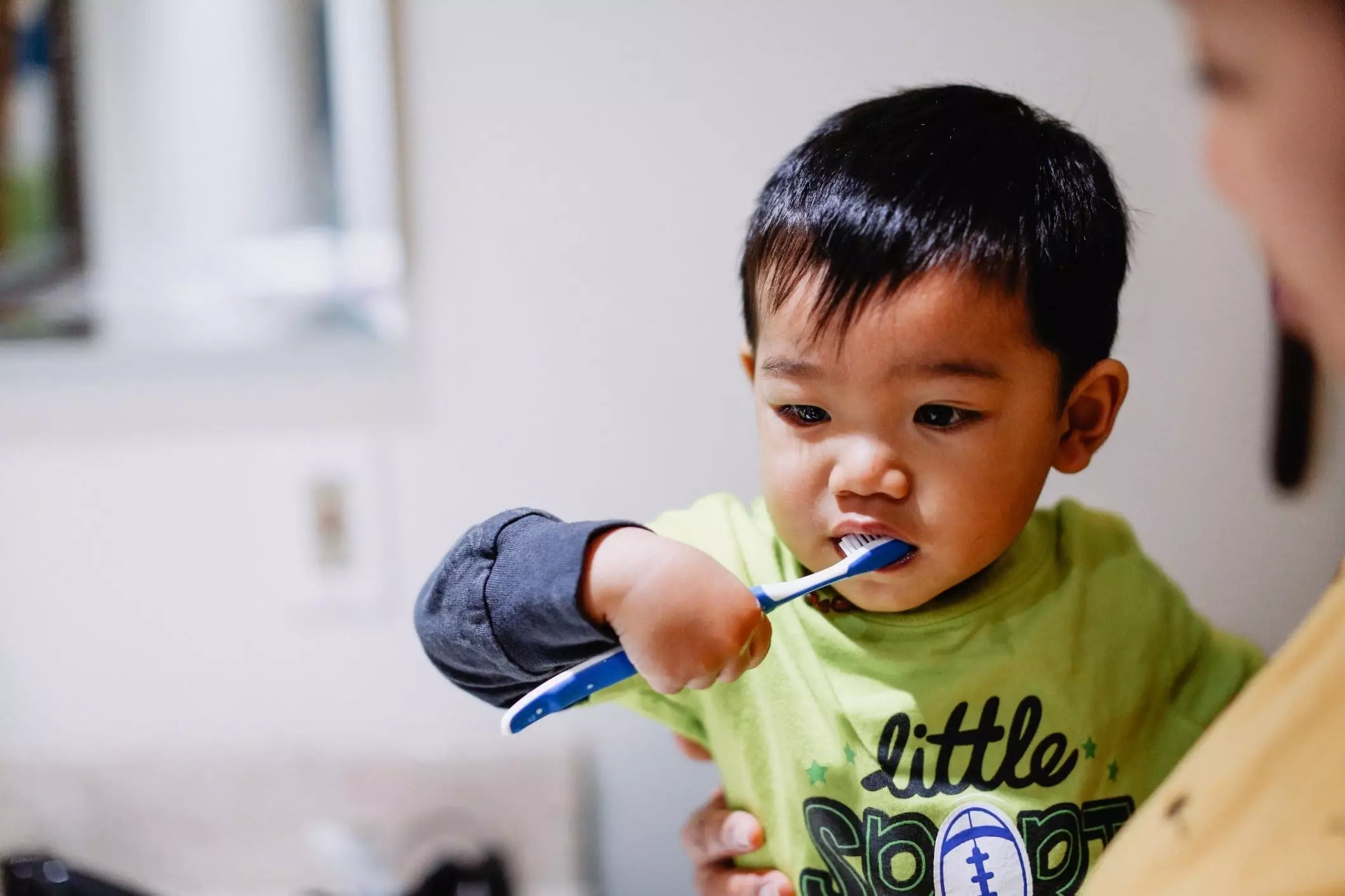As the sun gradually makes its descent and the day’s hustle begins to fade, the nightly routine takes center stage. Dinner has been served, plates cleared, and children are ready to wind down. However, one daunting task looms large: getting toddlers to brush their teeth. For many parents, the thought of tackling this nightly ritual can evoke a mix of dread and fatigue. But fear not—establishing a solid foundation for your child’s oral hygiene can be accomplished with patience, creativity, and a bit of routine!
The cornerstone of effective oral care begins in infancy. Experts, such as those from the American Academy of Pediatric Dentistry, recommend initiating oral hygiene practices as soon as your baby arrives. Using a soft cloth or infant toothbrush, you can start cleaning their gums and mouth, even before any teeth have emerged. As baby teeth begin to appear, integrating a tiny amount of fluoride toothpaste can lay the groundwork for a lifelong habit of dental care. This early intervention sets the stage for future health, teaching children the importance of oral hygiene from a young age.
Children thrive on predictability; routines provide them with a sense of security. Establishing a clear pattern for dental care sends a powerful message that brushing is a non-negotiable part of their daily lives. Create a consistent sequence of events, wherein tooth brushing becomes a natural progression after other evening rituals. For instance, if your child enjoys a bedtime story, make it an unwritten rule that brushing must precede the reading. This consistency reinforces the habit while simultaneously providing opportunities for closeness during shared activities.
To enhance your child’s willingness to brush, give them a stake in the decision-making process. Allowing toddlers to select their toothbrush—perhaps featuring their favorite superhero or cartoon character—can ignite their enthusiasm for brushing. Similarly, offering a range of toothpaste flavors can transform a mundane task into an exciting adventure. Encouraging them to choose not only fosters a sense of autonomy but also allows them to feel empowered in their personal hygiene routine.
Children learn best through imitation. By engaging in tooth brushing alongside your child, you provide a powerful example of this essential habit. Make it a family affair—playfully demonstrate the proper technique, showcase the importance of thorough brushing, and encourage your child to mimic your actions. This camaraderie will not only make brushing a more enjoyable experience but also solidify its significance in your child’s daily life.
While toddlers may yearn for independence, they often lack the dexterity required for complete toothbrushing. Allowing them to brush for a short period—such as 30 seconds—before stepping in to ensure thorough cleaning can help create a balanced approach. This method teaches them responsibility while also ensuring their dental health is not compromised. Such a partnership in self-care fosters trust and encourages your child to take pride in their routine.
Incorporating music into your dental regimen adds a delightful twist and forms an engaging atmosphere. Studies reveal that music and rhythm can enhance routine adherence, making the process feel joyful. Create a catchy tooth-brushing song, or simply adapt familiar melodies, allowing your child to see tooth brushing as a fun, musical activity. This can help alleviate any resistance they may have toward the ritual while solidifying its place in their nightly routine.
Children respond remarkably well to positive reinforcement. A simple sticker chart can motivate your little ones to brush their teeth regularly, and designating small rewards for consistent effort can fuel their enthusiasm. Think creatively—perhaps a reading session of their favorite book or a choice of dessert post-brushing can serve as effective incentives. By focusing on rewards, you cultivate an environment where brushing is associated with positivity rather than fear or negativity.
Frustration can arise when considering flossing for younger children; however, it is essential to understand what’s actually necessary at their developmental stage. Many toddlers’ teeth have not yet erupted closely enough to require flossing. According to expert guidelines, parents should only introduce flossing once adjacent teeth begin to touch. This strategic approach to dental care ensures that you aren’t imposing unnecessary tasks too early in their lives.
Fear-based tactics can often backfire, instilling anxiety rather than encouraging good behavior. Rather than scare your toddler into brushing by conjuring nightmares of cavities and dentist visits, focus instead on the benefits of maintaining a healthy smile. Celebrate their strong teeth, healthy gums, and the joy of brightening their smiles. Using positive language around oral care nurtures a healthy attitude toward dental hygiene.
Instilling good oral hygiene habits in toddlers is not just about keeping their teeth clean; it’s an opportunity for meaningful bonding. By weaving elements of fun, choice, and consistency into these daily rituals, parents create a positive framework that their children will carry into adulthood. As you embark on this dental journey, remember—through patience and creativity, you are not only teaching your child about teeth but also enriching your relationship with them during their early years. Happy brushing!

